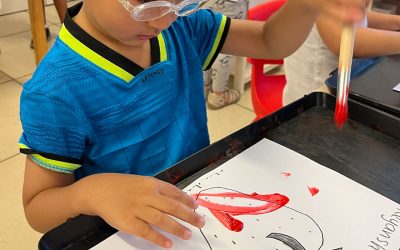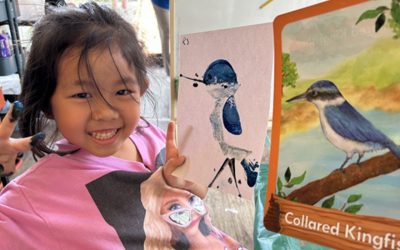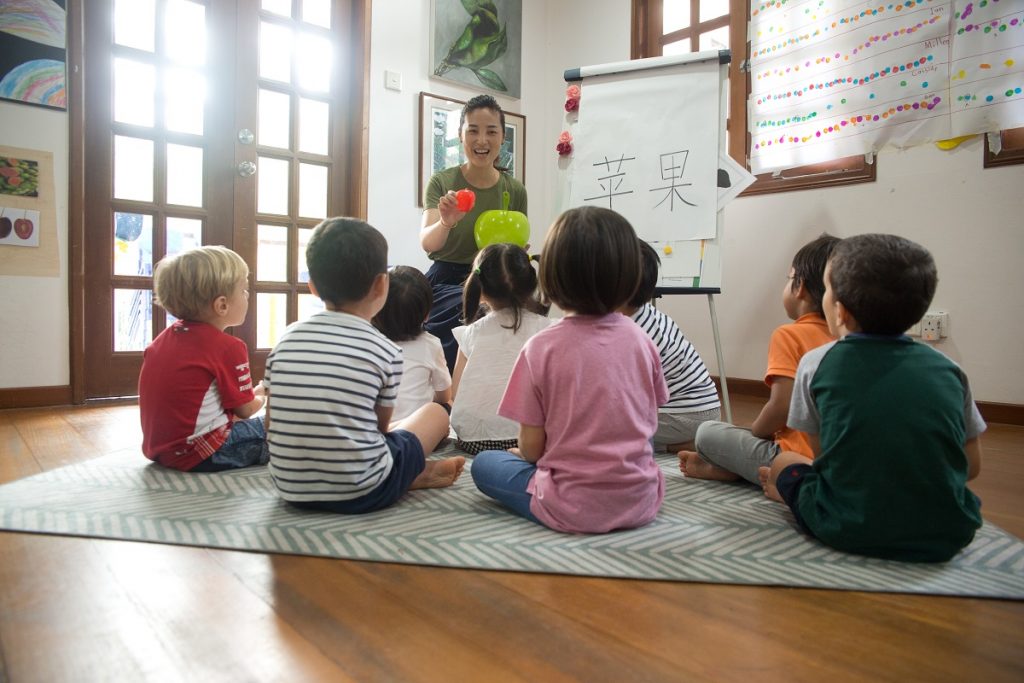
Is my child at the right age for kindergarten? Should they start kindergarten at four years of age?
From buying insurance policies to opening junior savings accounts, parents are all for giving their young children a headstart in life. The most valuable and accessible way to do so is by providing them with a solid education. These early years are especially important, considering that around 90 percent of brain development occurs in the first five years of life.
With that in mind, how and when should parents go about kick starting their young one’s foray into the wonderful world of learning? Read on to find out!
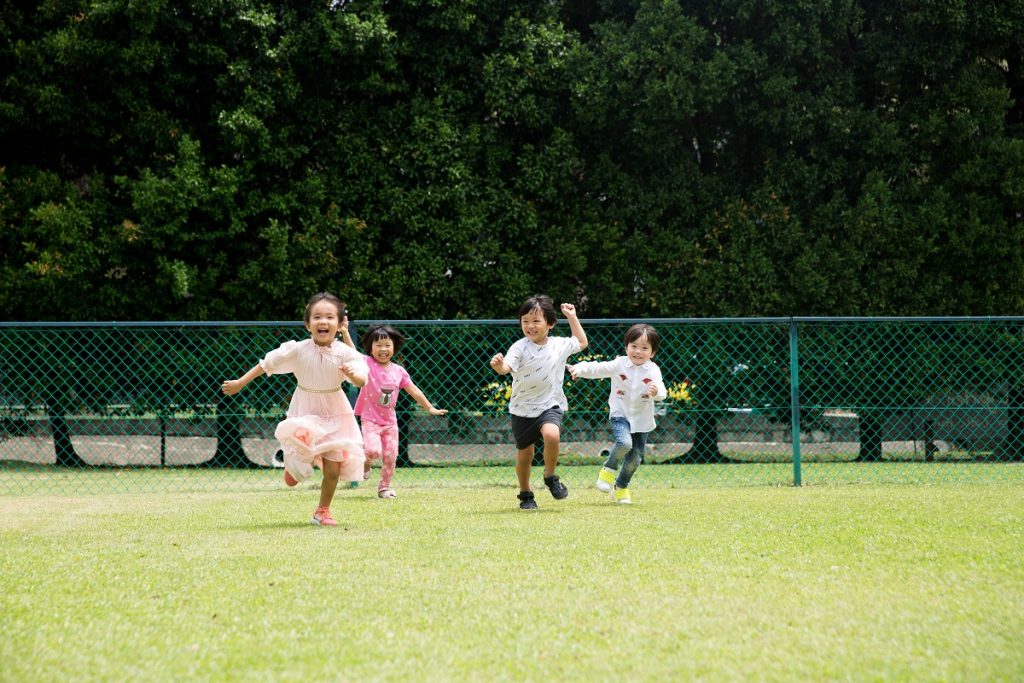
Is Kindergarten Compulsory in Singapore?
In Singapore, it is compulsory for all children to begin primary one in January of the year they turn seven. But what about preschool education? Is it mandatory for children to attend kindergarten in Singapore?
It has been estimated that up to 99 percent of incoming students aged six years attend at least one year of preschool to prepare them for formal schooling.
With such a high enrollment rate, parents may wonder if a kindergarten education is mandatory in Singapore. Afterall, earlier intervention to equip children with school readiness skills is strongly encouraged, as this will help to facilitate their transition to mainstream education.
The Early Childhood Development Agency (ECDA), which oversees and regulates the early childhood sector in Singapore, defines kindergartens as education centres with 10 or more children. All kindergartens in Singapore must be registered with ECDA, and are subject to regulatory requirements in four key areas:
- staff provision and quality;
- space, facilities and resources;
- safety, health and hygiene; and
- overall school experience, which should offer a comprehensive and holistic education programme.
Although the ECDA states that attending kindergarten isn’t compulsory–-which answers the question–-the agency also highlights that children can be enrolled at any age after 18 months and before they turn seven. So that’s the good news, which brings us to the next consideration for your child: when’s the “right” age for him to enter kindergarten?
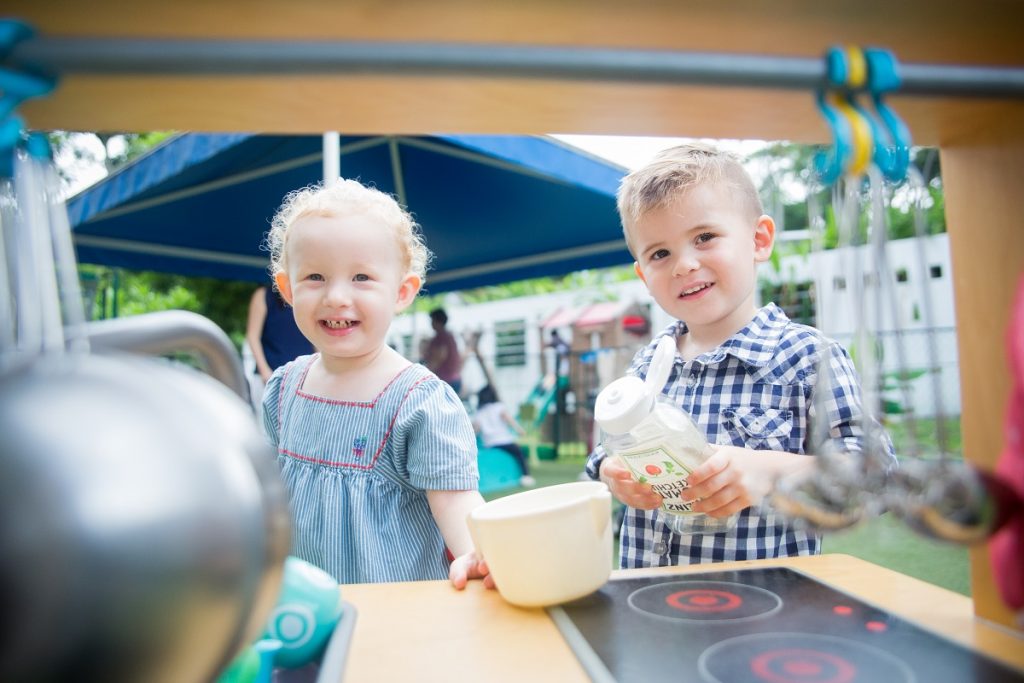
What Age Should I Start Kindergarten School For My Child?
The best age to start children in kindergarten is from 24 months to six years of age. Most experts agree that the first critical period of brain development, where the number of connections between brain cells doubles to enable faster learning, begins around age two and concludes around age seven.
Apparently, the rapidly developing brains of young children between these ages are primed for accelerated learning. Thus, kindergarten education should emphasise an all-rounded growth mindset that promotes physical, cognitive, social and emotional development.
Research has also found that children between the ages of two and seven can better grasp language patterns, empowering them to speedily master both a native and second language.
In young children, vision and hearing pathways develop first, followed by early language skills and higher cognitive functions. A child’s vocabulary grows fourfold between ages two and four. By the ages of three and five, they will show interest in making friends, empathise with others, and control as well as communicate their emotions.
Children aged between three and five also start to assert their independence by being able to go to the toilet on their own or feed themselves without help.
As a rough guideline, here is an overview of the “ages and stages” typical in a preschooler to further help you in your decision (keep in mind that some of these milestones may overlap!):
18 months to three years: Physical growth and motor development skills take a backseat to intellectual, social, and emotional changes—in other words, their personalities start to shine through! Responds best to activities that spur their imagination, senses and vocabulary as they begin to venture out and explore the world!
Three to four years: Developmentally capable of regulating their attention and behaviour with planning, reasoning, problem solving and impulse control. Responds best to activities that encourage hands-on exploration, promote life skills, literacy and numeracy, as well as physical challenges like jumping and climbing. Group settings promote friendships too!
Five to six years: Displays more confidence in social situations with pretend-play becoming more complex and sophisticated. Has a basic grasp of numerical concepts, decoding (reading) and written expression—may learn as many as five to 10 new words each day. As they near the age of formal schooling, children will be able to pay attention for longer periods of time , reason and understand logic. They can also apply their learning through project work and through creative expression . They also develop skills such as reading, writing and numerical understanding–which is perfect as they prepare for the transition to primary one!
Before registering your child in kindergarten, it’s useful to bear in mind the different centres available in Singapore. Those run by the Ministry of Education or anchor operators adhere to an age criteria, with five-year-olds attending Kindergarten 1 (K1), and Kindergarten 2 (K2) for six-year-olds. On the other hand, private kindergartens such as Heartfield Kindergarten have a more Integrated approach towards early learning, with programmes available to children from the age of 18 months.
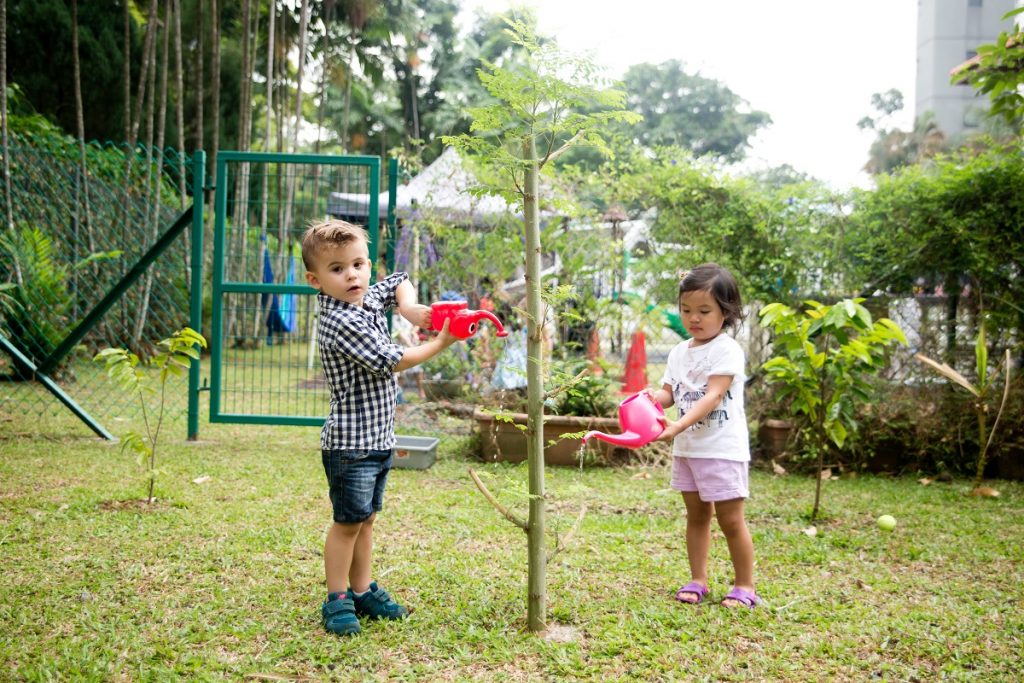
What Will My Child Learn in Kindergarten?
Research shows that children who engage in quality preschool programmes are more likely to possess the necessary social, cognitive and emotional skills required to help them make the leap to compulsory classroom settings. It’s hard to imagine your little 18-month toddler as a teenager now, but studies have indicated that kindergarten readiness promotes better health and lifestyle habits in children, and these benefits continue well into adolescence.
Constructive, hands-on activities that support age-appropriate learning goals are desired outcomes for your child throughout their time spent in kindergarten. schools such as Heartfield Kindergarten believe that all children deserve the opportunity to receive an enriching and enjoyable education.
What then, is the sort of “education” or learning experience my child should expect at kindergarten?
Kindergarten education emphasises child-initiated play-based activities. These encourage the acquisition of language and communication skills, fine and gross motor skills, and aid in problem solving, self- and social awareness:
- Language, literacy and numeracy (fundamental maths skills): Your child will be exposed to his ABCs and 123s in kindergarten, but not in the traditional sit-down-and-teach method. Academic learning (which includes, but is not confined to exposure to languages and numeracy concepts) is instead integrated with play-dominant approaches that also relate to everyday experiences to make learning more fun, relatable and engaging for little ones.
- Physical development: This includes honing your child’s gross motor and fine motor skills in a safe but unstructured setting so that his confidence grows. Expect your child to be exposed to plenty of play that challenges his physical abilities: from running, jumping, playing ball and other sports, to hands-on activities like painting , field trips, drama, and more. Some schools such as Heartfield Kindergarten even have cooking and gardening sessions as well as digital technology exposure.
- Socio-emotional skills: Beyond achieving academic milestones, a kindergarten education is also holistic as it instils vital social skills in a child. Through interactions with his teachers and peers, your child will learn to turn-take, communicate and collaborate with others, while regulating his emotions so that he can adapt to daily routines and new environments. Over time, your child’s feelings of self-worth and confidence will grow, as well as his interest in undertaking challenging tasks that require organising information and problem solving.

How Long is a Day in Kindergarten?
A typical kindergarten class usually lasts two hours (for younger toddlers) or for up to four or six hours. Some schools may offer optional enrichment programmes on top of regular classes. Most sessions begin at 830am or 9am, with some kindergartens providing the option of a mid-morning timing around 10am. Children are dismissed by lunchtime (between 12-1pm), with most of the day’s programmes for older kids ending by 4pm.
Upon drop-off, your child will be greeted by his class teacher and will have his temperature taken to ensure his well-being. Children will leave their school bags, water bottles and snack boxes at designated areas before the programme starts for the day.
Depending on your choice of kindergarten, your child will be immersed in a tailored curriculum that offers variety throughout the week to maximise learning potential. This encompasses:
- outdoor play and exploration;
- classroom-based activities like storytelling, show and tell, music;
- arts and crafts or science lessons; and
- information and communication technology time.
Midway through, your child will be given a break to enjoy his pre-packed light meal for the day, which he will consume with other classmates and occasionally, even the class teacher.
Baths, generally, are not provided for during the programme session (although exceptions can be made for top-to-toe cleanups).
Some kindergartens like Heartfield Kindergarten also devote daily time to inquiry-based learning in a small but informal group setting where your child gets to participate in lively discussions that promote bilingualism and spark curiosity with open-ended questions.
Before dismissal time, kids will engage in a routine that reviews the day’s learning activities, which may be accompanied by a goodbye singalong–all to boost the feel-good vibes in your child to foster his enthusiasm for another new day!
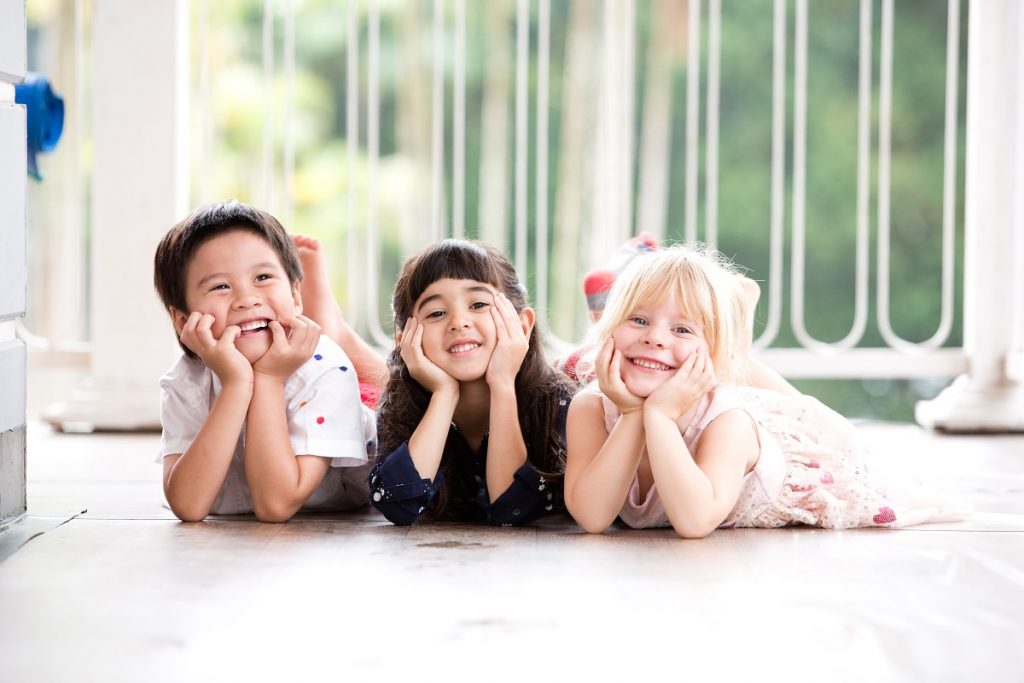
Why Parents Prefer Heartfield Kindergarten
Looking for the right kindergarten for my child. Heartfield Kindergarten fully embraces the potential of each child, and we accept children from the ages of 18 months to six years. As a firm advocate of lifelong learning, Heartfield lays the critical foundation that empowers every child in our care to grow into an enthusiastic and ready learner even beyond our doors.
At Heartfield, our precious children are encouraged to not just reach academic milestones to prepare them for primary school, but to
…but to also be:
Humble–confident enough to recognise we don’t know everything and are willing to keep learning
Excellent in whatever we do–always giving our “all”
Authentic-in both relationships and in the way we learn–having lots of real-life experiences in school
Respectful–showing care and concern for everyone
Tenacious- not giving up easily; accepting failure as part of the learning process; picking up and going again!
Heartfield Kindergarten families hail from diverse, multicultural backgrounds which makes our school such a rich, warmhearted and joyfillled “kampong” (village).—
We hope you will come and meet us! You are most welcome to visit us for a personal tour of our campus at 31 Balmoral Road and an introduction into how we can partner you on your parenting journey if your child is aged between 18 months and six years old. To learn more, get in touch at tel: +65 6835 2354, email: info@HeartfieldKindergarten.com or visit our contact page for details.
